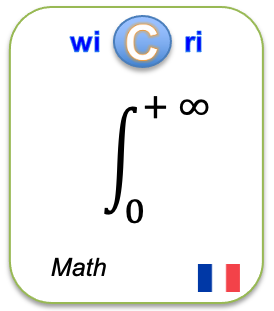The discrete logarithm problem from a local duality perspective
Identifieur interne : 000037 ( Main/Exploration ); précédent : 000036; suivant : 000038The discrete logarithm problem from a local duality perspective
Auteurs : Mingdeh Huang [États-Unis]Source :
- Science China Mathematics [ 1674-7283 ] ; 2013-07-01.
English descriptors
- KwdEn :
Abstract
Abstract: The discrete logarithm problem is analyzed from the perspective of Tate local duality. Local duality in the multiplicative case and the case of Jacobians of curves over p-adic local fields are considered. When the local field contains the necessary roots of unity, the case of curves over local fields is polynomial time reducible to the multiplicative case, and the multiplicative case is polynomial time equivalent to computing discrete logarithm in finite fields. When the local field does not contains the necessary roots of unity, similar results can be obtained at the cost of going to an extension that contains these roots of unity. There was evidence in the analysis that suggests that the minimal extension where the local duality can be rationally and algorithmically defined must contain the roots of unity. Therefore, the discrete logarithm problem appears to be well protected against an attack using local duality. These results are also of independent interest for algorithmic study of arithmetic duality as they explicitly relate local duality in the case of curves over local fields to the multiplicative case and Tate-Lichtenbaum pairing (over finite fields).
Url:
DOI: 10.1007/s11425-013-4674-1
Affiliations:
Links toward previous steps (curation, corpus...)
- to stream Istex, to step Corpus: 000F36
- to stream Istex, to step Curation: 000F36
- to stream Istex, to step Checkpoint: 000008
- to stream Main, to step Merge: 000037
- to stream Main, to step Curation: 000037
Le document en format XML
<record><TEI wicri:istexFullTextTei="biblStruct"><teiHeader><fileDesc><titleStmt><title xml:lang="en">The discrete logarithm problem from a local duality perspective</title><author><name sortKey="Huang, Mingdeh" sort="Huang, Mingdeh" uniqKey="Huang M" first="Mingdeh" last="Huang">Mingdeh Huang</name></author></titleStmt><publicationStmt><idno type="wicri:source">ISTEX</idno><idno type="RBID">ISTEX:4BD7EDBB6D5695073B228B78A7198A16589859DD</idno><date when="2013" year="2013">2013</date><idno type="doi">10.1007/s11425-013-4674-1</idno><idno type="url">https://api.istex.fr/document/4BD7EDBB6D5695073B228B78A7198A16589859DD/fulltext/pdf</idno><idno type="wicri:Area/Istex/Corpus">000F36</idno><idno type="wicri:explorRef" wicri:stream="Istex" wicri:step="Corpus" wicri:corpus="ISTEX">000F36</idno><idno type="wicri:Area/Istex/Curation">000F36</idno><idno type="wicri:Area/Istex/Checkpoint">000008</idno><idno type="wicri:explorRef" wicri:stream="Istex" wicri:step="Checkpoint">000008</idno><idno type="wicri:doubleKey">1674-7283:2013:Huang M:the:discrete:logarithm</idno><idno type="wicri:Area/Main/Merge">000037</idno><idno type="wicri:Area/Main/Curation">000037</idno><idno type="wicri:Area/Main/Exploration">000037</idno></publicationStmt><sourceDesc><biblStruct><analytic><title level="a" type="main" xml:lang="en">The discrete logarithm problem from a local duality perspective</title><author><name sortKey="Huang, Mingdeh" sort="Huang, Mingdeh" uniqKey="Huang M" first="Mingdeh" last="Huang">Mingdeh Huang</name><affiliation wicri:level="4"><country xml:lang="fr">États-Unis</country><wicri:regionArea>Department of Computer Science, University of Southern California, 90089-0781, Los Angeles, CA</wicri:regionArea><placeName><region type="state">Californie</region><settlement type="city">Los Angeles</settlement></placeName><orgName type="university">Université de Californie du Sud</orgName></affiliation><affiliation wicri:level="1"><country wicri:rule="url">États-Unis</country></affiliation></author></analytic><monogr></monogr><series><title level="j">Science China Mathematics</title><title level="j" type="abbrev">Sci. China Math.</title><idno type="ISSN">1674-7283</idno><idno type="eISSN">1869-1862</idno><imprint><publisher>Springer Berlin Heidelberg</publisher><pubPlace>Berlin/Heidelberg</pubPlace><date type="published" when="2013-07-01">2013-07-01</date><biblScope unit="volume">56</biblScope><biblScope unit="issue">7</biblScope><biblScope unit="page" from="1421">1421</biblScope><biblScope unit="page" to="1427">1427</biblScope></imprint><idno type="ISSN">1674-7283</idno></series></biblStruct></sourceDesc><seriesStmt><idno type="ISSN">1674-7283</idno></seriesStmt></fileDesc><profileDesc><textClass><keywords scheme="KwdEn" xml:lang="en"><term>discrete logarithm</term><term>local duality</term></keywords></textClass><langUsage><language ident="en">en</language></langUsage></profileDesc></teiHeader><front><div type="abstract" xml:lang="en">Abstract: The discrete logarithm problem is analyzed from the perspective of Tate local duality. Local duality in the multiplicative case and the case of Jacobians of curves over p-adic local fields are considered. When the local field contains the necessary roots of unity, the case of curves over local fields is polynomial time reducible to the multiplicative case, and the multiplicative case is polynomial time equivalent to computing discrete logarithm in finite fields. When the local field does not contains the necessary roots of unity, similar results can be obtained at the cost of going to an extension that contains these roots of unity. There was evidence in the analysis that suggests that the minimal extension where the local duality can be rationally and algorithmically defined must contain the roots of unity. Therefore, the discrete logarithm problem appears to be well protected against an attack using local duality. These results are also of independent interest for algorithmic study of arithmetic duality as they explicitly relate local duality in the case of curves over local fields to the multiplicative case and Tate-Lichtenbaum pairing (over finite fields).</div></front></TEI><affiliations><list><country><li>États-Unis</li></country><region><li>Californie</li></region><settlement><li>Los Angeles</li></settlement><orgName><li>Université de Californie du Sud</li></orgName></list><tree><country name="États-Unis"><region name="Californie"><name sortKey="Huang, Mingdeh" sort="Huang, Mingdeh" uniqKey="Huang M" first="Mingdeh" last="Huang">Mingdeh Huang</name></region><name sortKey="Huang, Mingdeh" sort="Huang, Mingdeh" uniqKey="Huang M" first="Mingdeh" last="Huang">Mingdeh Huang</name></country></tree></affiliations></record>Pour manipuler ce document sous Unix (Dilib)
EXPLOR_STEP=$WICRI_ROOT/Wicri/Mathematiques/explor/BourbakiV1/Data/Main/Exploration
HfdSelect -h $EXPLOR_STEP/biblio.hfd -nk 000037 | SxmlIndent | more
Ou
HfdSelect -h $EXPLOR_AREA/Data/Main/Exploration/biblio.hfd -nk 000037 | SxmlIndent | more
Pour mettre un lien sur cette page dans le réseau Wicri
{{Explor lien
|wiki= Wicri/Mathematiques
|area= BourbakiV1
|flux= Main
|étape= Exploration
|type= RBID
|clé= ISTEX:4BD7EDBB6D5695073B228B78A7198A16589859DD
|texte= The discrete logarithm problem from a local duality perspective
}}
|
| This area was generated with Dilib version V0.6.33. | |



